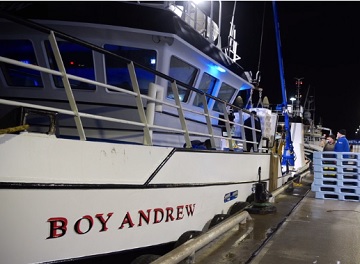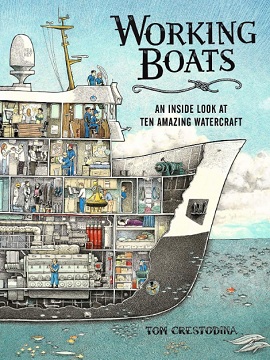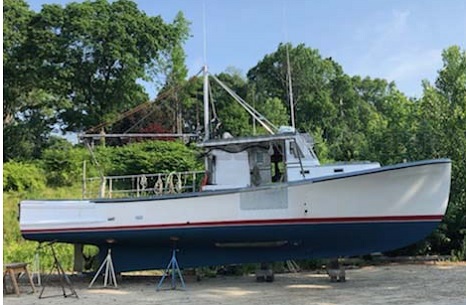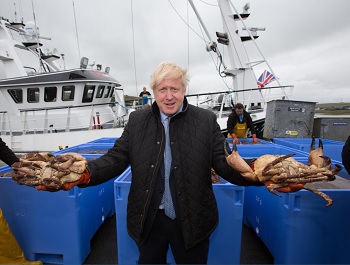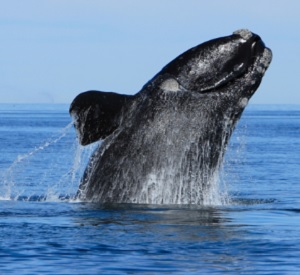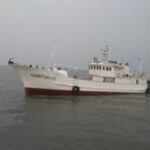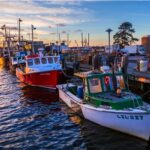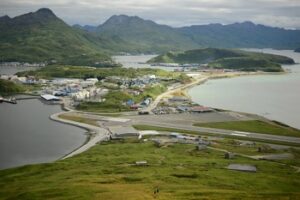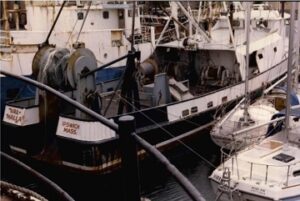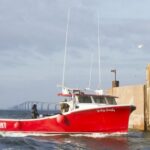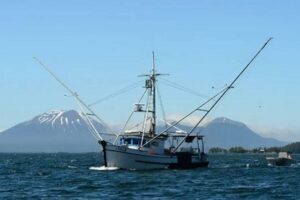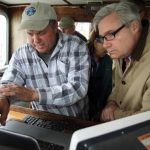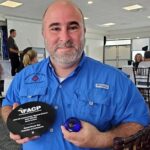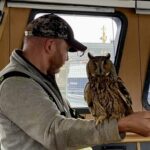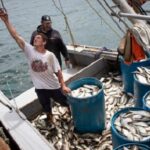Author Archives: borehead - Moderator
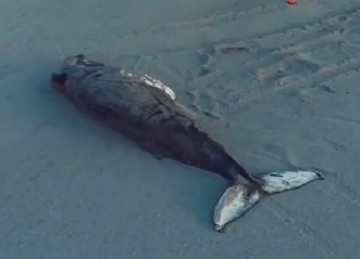
Rep. Golden calls on NOAA to provide more information on whale deaths
Representative Jared Golden is calling on the National Oceanic and Atmospheric Administration, or NOAA, to give full transparency on their findings from 18 recent whale strandings. He wants a deep dive into the causes of death, saying NOAA’s current release of data is surface level, leaving the public to wonder if it’s disease, vessel strikes or lobster gear killing the whales. In the letter written to the federal government, Golden says if lobster fishing is facing scrutiny for right whale entanglements, shouldn’t all potential causes be weighed? That includes offshore wind development. Video, >click to read< 11:15
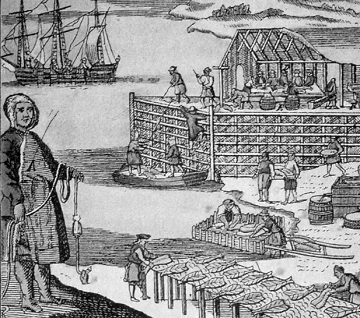
The Fishing Revolution and the Origins of Capitalism
Fishing is older than humanity. Fishing for sale rather than consumption developed along with the emergence of class-divided urban societies about five thousand years ago. Getting fish to towns and cities where people could not catch it themselves required organized systems for catching, cleaning, preserving, transporting, and marketing. This was particularly true in the Roman Empire, where serving fresh fish at meals was a status symbol for the rich, and fish preserved by salting was an essential source of protein for soldiers and the urban poor. In addition to boats, an extensive shore-based infrastructure was needed to provide fish for millions of citizens and enslaved people: “elaborate concrete vats and other remains of ancient fish-processing plants have been found all along the coasts of Sicily, North Africa, Spain, and even Brittany on the North Atlantic. The first surviving account of fish depletion caused by overfishing was written in Rome, about 100 CE. >click to read< 10:29
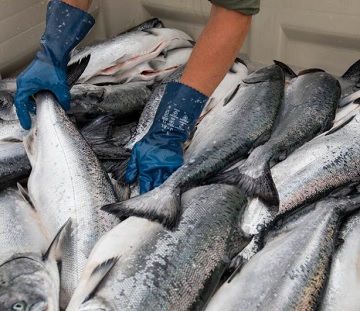
Poor outlook for king salmon could shut down California’s sport and commercial seasons
This year’s official “forecast abundance” estimates that just 169,767 adult chinook salmon are waiting off shore to be caught — a substantial decrease from the 396,458 predicted last year and forecasts above 800,000 a decade ago. A nearly 2-month delay in the Dungeness crab season this year meant commercial crabbers missed the Thanksgiving, Christmas and New Year’s holidays and then had a glut of fresh crab available when the market was weak, said veteran fisherman Dick Ogg, vice president of the Bodega Bay Fisherman’s Marketing Association, which represents the local commercial fleet. Though Ogg participates in a variety of fisheries, many locals only do salmon, crab or both. “For the guys that only have salmon as a potential income, it’s going to be devastating,” he said, “and for the guys who have salmon and crab, and who have had a minimal crab season, it’s going to be devastating.” >click to read< 09:05
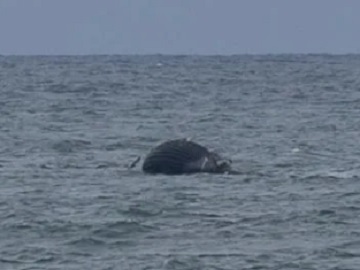
Another dead whale seen floating off Jersey Shore, this time in Seaside Park
Another dead humpback whale — the ninth dead whale to be reported or come ashore in New Jersey since Dec. 1 — was seen Wednesday afternoon floating about a half-mile off of the shoreline near the L Street beach. The whale was reported to the Marine Mammal Stranding Center of Brigantine and then to federal authorities at the National Oceanic and Atmospheric Administration, or NOAA, said NOAA spokeswoman Allison Ferreira. Wednesday’s stranding is at least the 18th sighting or beaching of a dead whale or dolphin in the New Jersey-New York region since the beginning of December. >click to read< 08:09

Family of missing Washington crab fisherman pushes for mandatory personal locator beacons
It has now been more than three weeks since Bryson Fitch, a 23-year-old Washington father of three went missing at sea after the crabbing boat he was working on started to sink. As his family continues scouring the beaches near Willipa Bay searching for him, his mother-in-law is hoping to bring awareness to the federal maritime laws regarding wearable locator devices. She believes a change in that law may have prevented her family’s heart-wrenching loss. “If they would have showed up — when they rescued those two guys — and he had a beacon on his belt, they would have found him,” said Briee Roby, Fitch’s mother-in-law. Video, >click to read< 13:00
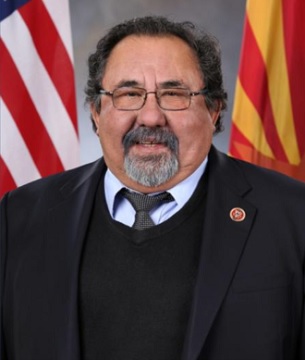
Maine delegation to fight bill that would repeal ‘pause’ in lobstering regulations
When Congress passed a law in December that included a six-year reprieve from new federal regulations for the lobster industry, the fishery heaved a sigh of relief. But if a new bill introduced this week in the House of Representatives is approved, that relief would be short-lived. Maine’s congressional delegation says they are committed to ensuring that doesn’t happen. On Monday, Rep. Raul Grijalva, D-Arizona, introduced The Restoring Effective Science-based Conservation Under Environmental Laws Protecting Whales Act, or the RESCUE Whales Act. If passed, the bill would repeal the protections for the lobster fishery that were included in the 2022 federal omnibus spending law. The omnibus poses an “existential threat” to the North Atlantic right whale, undermines the science-based protections of both the Endangered Species Act and the Marine Mammal Protection Act, and ignores possible solutions like “ropeless gear,” Grijalva said in a statement. >click to read< 11:31
Athearn Marine Agency Boat of the Week: 46′ Jarvis Newman Lobster Boat/Fed Area 1 Permit and Traps
To review specifications, information, and 10 photos’, >click here<, To see all the boats in this series >click here< 10:26
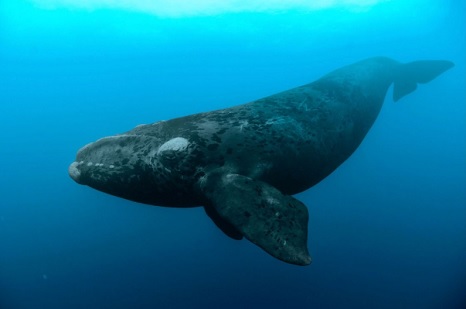
Blue State Enviro Groups Demand Answers From Green Biden Administration On Whale Deaths
Nonprofit groups in the state’s coastal towns have spent months trying to get the administration to place a moratorium on offshore wind projects until a thorough, transparent investigation can be completed to see if there is a connection to recent whale strandings. Since December 2022, over 20 whales have washed up along east coast shores near survey sites for future offshore wind projects in an unusual mortality rate, according to NOAA. “The low-frequency sonar used in the windmills is causing deafness in the whales. It’s one of those things that science is only going to pick up on years after the fact, in the meantime, whales are being killed,” James Lovgren, board of trustee member of Clean Ocean Action and retired commercial fisherman, told the DCNF. “You have to pause and ask, ‘why are we doing this?’” >click to read< 09:17
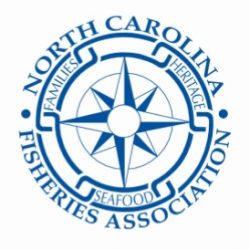
North Carolina Fisheries Association Weekly Update for February 28, 2023
The NC Marine Fisheries Commission (MFC) met last week in New Bern. During this meeting, a lot of interesting conversations were had and plenty of motions were voted on. I am going to recap some of the bigger takeaways. If anyone wants to review the meeting (or any particular sections), here are the links for each day: in the video description, the agenda is broken up which allows you to advance to a specific section. More, >click to read< 08:01
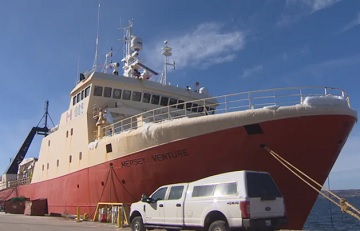
Ottawa signs new deal to charter fishing boats for science surveys
The agreement with the Atlantic Groundfish Council, which represents the region’s largest seafood companies, allows DFO to charter industry vessels for two to six weeks a year for fisheries or ecosystem surveys in Atlantic Canada. “We’ve been distressed in the fishing industry for two or three years now because DFO research vessel surveys were not getting done,’ said Bruce Chapman, president of the Atlantic Groundfish Council. DFO scientists returned last week from the first mission under the new charter agreement. It was a two-week survey on Georges Bank aboard the Mersey Venture, a 58-metre factory freezer trawler owned by Nova Scotia seafood company Mersey Seafoods. The Mersey Venture gathered data used by both Canada and the United States to jointly manage trans-boundary haddock, cod and yellowtail flounder stocks on the shared fishing grounds. Photos, >click to read< 17:35
Stop By and See Us at the 48th Maine Fishermen’s Forum
 48th Maine Fishermen’s Forum-2023 Seminar Short Listing (Times and Titles) Final: (Word) (PDF)-2023 Seminar Detailed Descriptions (PDF) Final: (Word) (PDF)-2023 Thursday Seminars and Events Schedule Final: (PDF)-2023 Friday Seminars and Events Schedule Final: (PDF)-2023 Saturday Seminars and Events Schedule Final: (PDF)-15:29
48th Maine Fishermen’s Forum-2023 Seminar Short Listing (Times and Titles) Final: (Word) (PDF)-2023 Seminar Detailed Descriptions (PDF) Final: (Word) (PDF)-2023 Thursday Seminars and Events Schedule Final: (PDF)-2023 Friday Seminars and Events Schedule Final: (PDF)-2023 Saturday Seminars and Events Schedule Final: (PDF)-15:29

Many voices weigh in on offshore wind plan
Three days after Governor Janet Mills unveiled an offshore wind roadmap, a “comprehensive plan that offers detailed strategies” for offshore wind power in the Gulf of Maine, a handful of unconvinced citizens gathered at the Sustainable Maine Fishing Foundation Feb. 26 on Bar Harbor Road in Trenton. The idea was to inform lobstermen and interested people on offshore wind development before a Bureau of Ocean Energy Management (BOEM) presentation that opens the Fishermen’s Forum March 2 in Rockport, board member Ginny Olsen said. Energy operations consultant George Stover of Freeport, who has worked in the state’s energy industry for decades, discussed the Maine power grid and its energy sources and why, to his mind, offshore wind power is not a good fit or needed here. “If they continue down this road, it scares me,” he said. He is not alone. The idea of floating offshore wind installations in the Gulf of Maine has raised fears and concerns from environmentalists and fishermen alike. >click to read< 12:42

Maine lobster industry wages legal battle over recent regulations, while new ones remain frozen
The Maine Lobstermen’s Association in September appealed a ruling in a lawsuit against federal regulators in which a judge rejected the association’s attempt to block the National Marine Fisheries Service’s 10-year plan to reduce the risk posed by fishing gear to North Atlantic right whales. The animals risk injury or death when they become entangled in lines or gear. The case has been moving with relative speed through the court system, with oral arguments presented in the U.S. Court of Appeals in Washington, D.C., last week. The association argued that the National Marine Fisheries Service, part of the National Oceanic and Atmospheric Administration, failed to rely on the best scientific information available and did not account for the impact of conservation measures already adopted by the Maine lobster fishery. In effect, the lobstermen argue, the federal government placed its thumb on the scale in favor of the whales. >click to read< 10:56
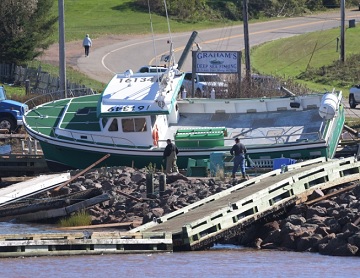
Fisheries Department scrambled to claw back ‘ill-timed’ lobster tweet during Fiona
Some people can’t see the forest for the trees. Others can’t see the hurricane for the lobsters. On Sept. 24, around 9 a.m. Atlantic time, a few hours after Hurricane Fiona had slowed slightly into a post-tropical cyclone and slammed into Nova Scotia, the federal Fisheries Department issued two preplanned posts on Twitter and Facebook. The first urged everyone to avoid the coastline and stay safe. The second warned them off helping themselves to wayward lobsters. “As well, if you find lobsters washed up on the shore after the storm, remember it is illegal to harvest them,” it read. “Simply leave them there.” >click to read< 10:17
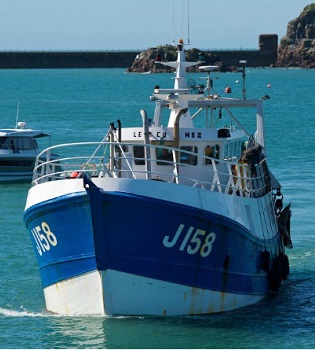
Salvors to Raise Trawler that Sank Following Deadly Collision off Jersey
The wreckage of the trawler L’Ecume II, which sank in Jersey waters on December 8, 2022 following a collision with a commercial cargo vessel, is to be raised for evidential and humanitarian reasons, the Jersey government confirmed via an official statement. The States of Jersey Police made the recommendation to raise the wreck as it may assist in both the forensic and overall investigation. The collision involving L’Ecume II and the Condor Ferries Ro-Ro Commodore Goodwill occurred at 05:30 local time on December 8. The trawler sank shortly afterwards with its crew of three still on board. Search and rescue/recovery teams pulled the bodies of Filipino crewmen Jervis Baligat and Larry Simyunn out of the water in the days following the sinking. No trace of Micheal Michieli, the boat’s captain, has yet been found. >click to read< 09:07
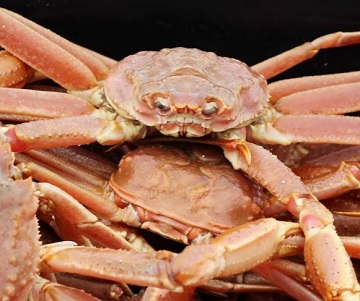
N.L. snow crab population remains healthy, though market uncertainty persists
Newfoundland and Labrador’s most valuable fishery may be encountering rough market conditions, and the economic outlook for this year is bleak, but an assessment reveals that snow crab stocks remain strong, a few years after nearly collapsing. “We’ve seen an increase in the last few years in exploitable biomass,” Five years ago, alarm bells were sounding as the biomass shrank to historic lows, resulting in steep quota cuts for commercial harvesters and worries the industry would collapse. Landings hit a 25-year low in 2019. But now industry leaders sound much more upbeat about the health of the stocks. >click to read< 17:27
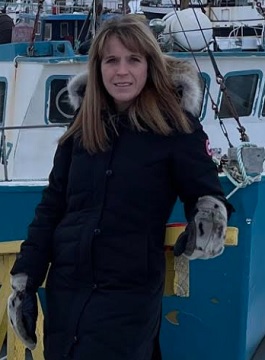
SEA-NL elects new President, first woman leader of fisheries organization in province’s history
Fortune-based inshore enterprise owner Pamela Patten has been elected President of Seaward Enterprises Association of Newfoundland and Labrador (SEA-NL), believed to be the first woman to lead a fisheries organization in the province’s history. “As a woman I will obviously bring a slightly different perspective to the table, but my role will be to unite owner-operators around the province regardless of fleet or gender,” says Patten, who runs the Bradley Venture, a 39’11 longliner that primarily fishes snow crab and lobster. >click to read< 14:22
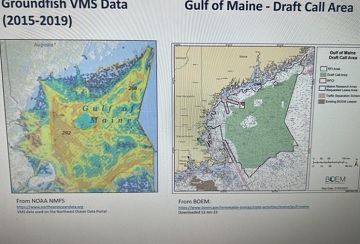
Gloucester webinar tackles concerns about wind farm projects
At the nascent stage of wind farm development in the Gulf of Maine, a webinar last week looked at the possible impacts to marine life, coastal communities and fisheries while acknowledging there are many unknowns to such projects. Capt. Al Cottone, a commercial fisherman and executive director of the Gloucester Fisheries Commission, said the industry has “a ton of questions that haven’t been answered yet. And I don’t think these questions will be answered in the time frame that was shown earlier in the presentation and it’s very concerning to the industry.” “We are very concerned about the displacement of vessels,” Cottone said. “Once you start losing access to fishing grounds, it puts a lot of pressure on other fishing grounds.” >click to read< 12:28

Fishermen at Pillar Point hold fast for better days
Captain Mike Burian, who fishes under the vessel, Prime Time out of Pillar Point Harbor, bought a boat last year when it sounded like a good deal; however, his dream of running a profitable crabbing and salmon boat quickly turned into a nightmare after multiple delays in the season and various obstacles made it increasingly difficult to turn a profit. “I always wanted to do this and someone was selling the vessel, pods and permits and I thought it was a good idea at the time,” Burian said. “If I did well, I was going to do it full time and fish for salmon as well; but, at this time, there is no way to make a living with this as far as I can see.” >click to read< 08:47
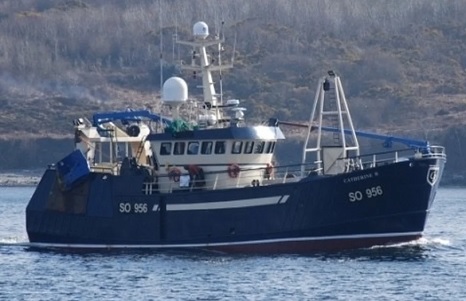
Trawlers scrapped over quotas ‘end a lifetime of fishing’
Work on scrapping a number of Irish fishing vessels is under way in an effort to rebalance fish quotas following post-Brexit agreements. The Catherine R is among the first vessels to be decommissioned. She was a steel trawler built in 2005 and fishing from the port of Greencastle in Co Donegal. Her owner Cara Rawdon has been fishing for 46 years. He said that he chose to accept to decommission his fishing boat,,, On seeing his ship being ripped apart for the scrap heap, he said: “It’s like seeing your home being torn apart. I saved the money to buy her and make her safe for the crew. It was a very difficult decision because not only had I to decide my own future I also had to think of my crew. It’s a very hard decision to make to end a lifetime of fishing.” >click to read< 07:51
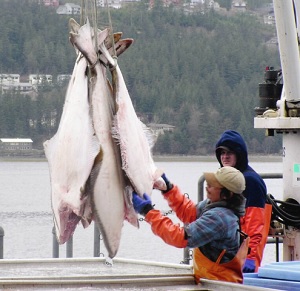
Halibut treaty marked new era in Canadian independence
On March 10, the 2023 wild Pacific halibut fishing season opens. Fishers licensed accordingly will be able to harvest the white-fleshed groundfish from Bering Strait to California until early December. That there is a halibut season at all on this coast is due to an agreement signed a century ago between the U.S. and Canada. The 1923 Convention between Canada and the United States of America for the Preservation of the Pacific Halibut Fishery of the Northern Pacific Ocean and Bering Sea, also known as the Halibut Treaty of 1923, is the first environmental treaty designed to conserve ocean stocks of a fish. It is also the first treaty the Canadian government negotiated and signed independently. >click to read< 12:43
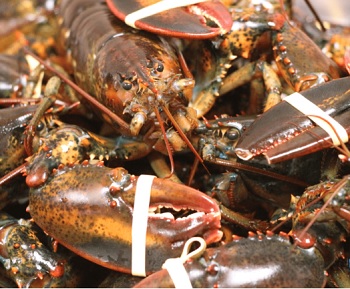
Vietnamese favor Canadian lobsters, snow crabs
Vietnam spent US$65 million importing Canadian seafood, mainly lobsters and snow cabs last year, doubling 2021 imports and trebling 2020. Among Southeast Asian countries, Vietnam was Canadian’s biggest seafood importer, Steve Craig, Minister of the Department of Fisheries and Aquaculture of the Canadian province of Nova Scotia, said at a recent business networking event in HCMC. Although Vietnam is the world’s fourth largest seafood exporter with an annual turnover of $11 billion, it is still a fertile ground for Canadian products, he said, noting that Vietnamese are among the world’s top seafood consumers. >click to read< 11:47
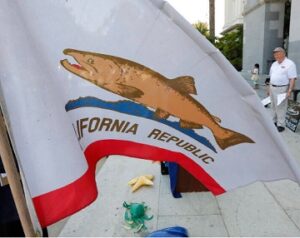
Editorial: State orders will harm salmon fisheries
During recent droughts, low river flows and warm water have proved to be a lethal combination for salmon and other fish in the Sacramento River and its tributaries. State waivers of water quality regulations in six of the past 10 years didn’t help beleaguered fisheries. January’s drenching rains dramatically improved river conditions across the state, raising hopes for winter run chinook salmon. But the storms also generated a cascade of complaints about water being “wasted.” In other words, storm runoff flowed through the Sacramento-San Joaquin Delta and into the Pacific Ocean. Gov. Gavin Newsom responded by suspending environmental regulations so more water is available this summer for Central Valley agriculture, a decision affirmed last week by the state Water Resources Control Board. >click to read< 09:56

NOAA and BOEM; Ignorance is Bliss. By Jim Lovgren
For about twenty years the Natural Resources Defense Council [NRDC] engaged the US Navy in a legal battle over the effects of the Navy’s use of Mid Frequency Sonar in training exercises and its impact on marine mammals and other creatures, with one case even reaching the US Supreme court. While there are many different aspects of NRDC’s legal actions, the results of the litigation have produced an enormous amount of scientific data and research regarding the effects of underwater sound on marine creatures, with an emphasis on Sonar and marine mammals. They forced the Navy to admit that their use of sonar had resulted in the unintentional mass strandings of many different marine Mammals in a dozen different instances around the world, primarily involving Beaked whales, that are classified as being low to mid frequency cetaceans. >click to read< 08:48
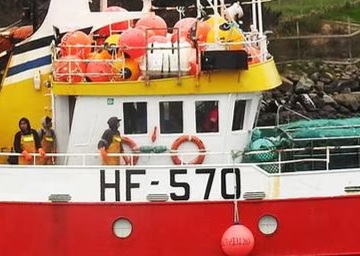
German vessel’s skipper lands in court on fishing charges
The skipper of a German-registered fishing trawler is due to appear at Cork Circuit Criminal Court this week to face 25 charges of breaches of fishing regulations off the West Cork coast. Ramon Manuel Nova Martinez (57) of Corosopalmeira, Riberia, La Coruna, Spain appeared at a special sitting of Bandon District Court on Monday after his vessel Ortegal Tres, was detained by Irish authorities. Mr Martinez was charged with 17 offences for allowing his fishing nets exceed the soak time of 72 hours in respect of static gear, while he was also charged with four offences for failing to accurately record soak times as well as four charges of failing to record the depth of the catch. >click to read< 07:43






